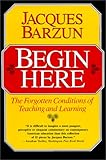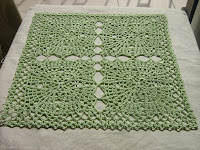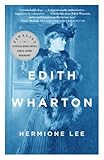 The Castle in the Pyrenees
The Castle in the Pyrenees
by Jostein Gaarder is the latest to be translated into English from the author of
Sophie's World: A Novel About the History of Philosophy (FSG Classics)
. Most people have heard of
Sophie's World, and some have even read it. I am fascinated by Jostein Gaarder's work (in spite of the fact that we have some fundamental differences of belief) and I have read everything he's written that has been translated into English. Even
Maya.
So, I must begin by saying that I enjoyed this book. The premise is intriguing. Two young lovers experience a life-changing event. For one, the experience is a prelude to a life of faith. For the other, the same event confirms a dis-belief in anything supernatural. Their differences lead to a parting of ways, and they do not meet again for 30 years. Suddenly, in the same location as their long-ago crisis, they meet unexpectedly. Both have married other people and have families, but they embark on an email exchange (the novel should be considered epistolary) in which they explore their common experience (which was confusing and unsettling) and their different beliefs.
When I realized that the book was essentially a discourse on the existence of the supernatural versus a purely material world, I was further engrossed. I consider the question of no small importance, and I am unabashedly on the side of the spiritual, and reject statements such as:
There is no inherent intent, purpose or essence to the universe, and this is generally held to be a self-evident assumption.
How convenient, no? You call it self-evident, and thus side-step the necessity of supporting it, but it's absurd in light of the order and intent we see in our world, from the smallest microorganism to the cosmos itself. If you were walking through a jungle, and you suddenly emerged into a cleared space, in which the trees grew in orderly rows (a row of nuts, a row of fruit trees, another row of a different fruit, and so on) and if, between the evenly-spaced trees, you found clipped grass and beds of flowers also growing in homogenous groups and grows, you would
know that someone had planned that space, cleared it and cultivated it, cared for it, and kept it separate from the wild disorder of the nearby jungle. Not for one, tiny, instant would you imagine that the clearing was an accidental, natural occurrence in the midst of the jungle.
So, feel free to tell me that it is "self-evident" that the universe reveals no intent if you want to, but I will only believe you if you can tell me that you would also believe that a child could pour a bucket of Legos onto the floor, and that they could fall into a model of the Eiffel Tower. Order is order, and it reveals intelligent intent, not chance. If you saw the model of the Eiffel Tower, you would know, instinctively, that someone had planned and executed it, and you would not be foolish enough to suggest otherwise.
So Gaarder sets up this dialog between the materialist scientist (and I'll just mention here that there is a lot of gratuitous propaganda about global warming in this book as well) and the vibrant, convinced believer in the supernatural. At the halfway point in the book, I was fascinated to see how it was going to play out--who was going to convince whom?
But this is Gaarder, and if you read him, you know that he isn't about black-and-white, clear-cut answers. I applaud him for facing the questions and hashing it out in story form. I love that sort of thing. But if you are looking for resolution or final answers, you won't find them here. The ending is ambiguous, and both parties walk away from their encounter with their convictions shaken, less certain than they had been before. Yes, the person with faith wavers, and wonders if the materialist might have a rational, scientific explanation after all. But that is not the end. The end of the story is shaped in such a way (and I really can't give that away, in spite of the fact that very few people are likely to read this book) that the materialist
cannot continue to disbelieve in the supernatural. He knows--he cannot longer doubt--that death is not the end of existence, and that there are yet many, many questions about the universe which science is in no position to answer.
This is one of those books in which nothing really happens--we have only the letters, which do tell us some of the events which have occurred, but mostly the story is about ideas. Both characters are sympathetic, although they are not developed in great depth. What we know about them, we know through their letters. He drinks too much. She is carrying on the correspondence with her husband's knowledge, but he begrudges her time thus spent, and so she placates him. Neither has forgotten their former love and relationship.
It was an interesting book--an interesting story. I really wish I could share the crux of the ending, the paradox that brings the past and present together, and leaves the future in question, but that would spoil it. I hope Gaarder keeps writing. Mostly, I hope he finds some real answers, and then keeps on asking good questions. There aren't many people who weave philosophy and story together as skillfully as he can.














